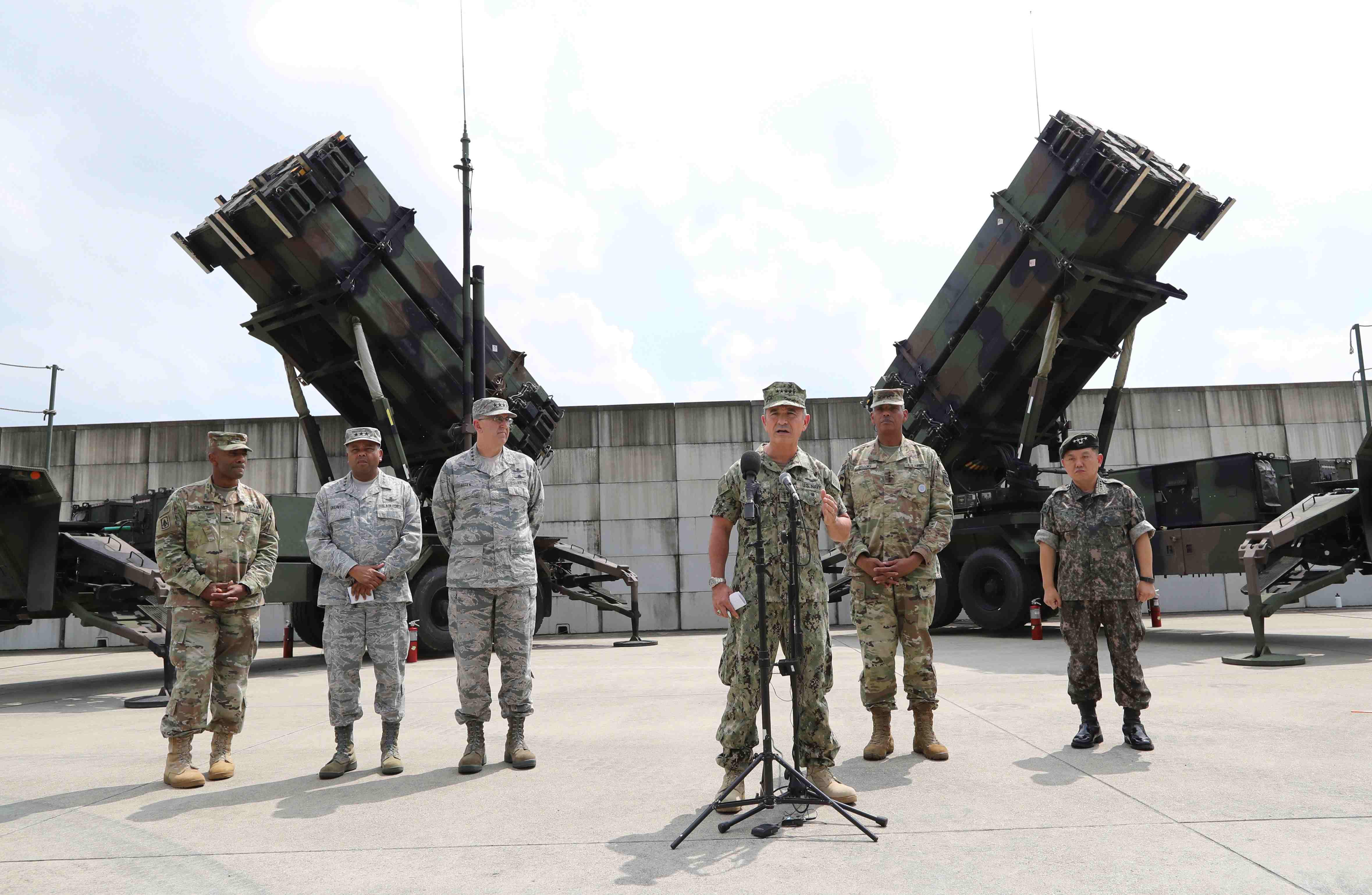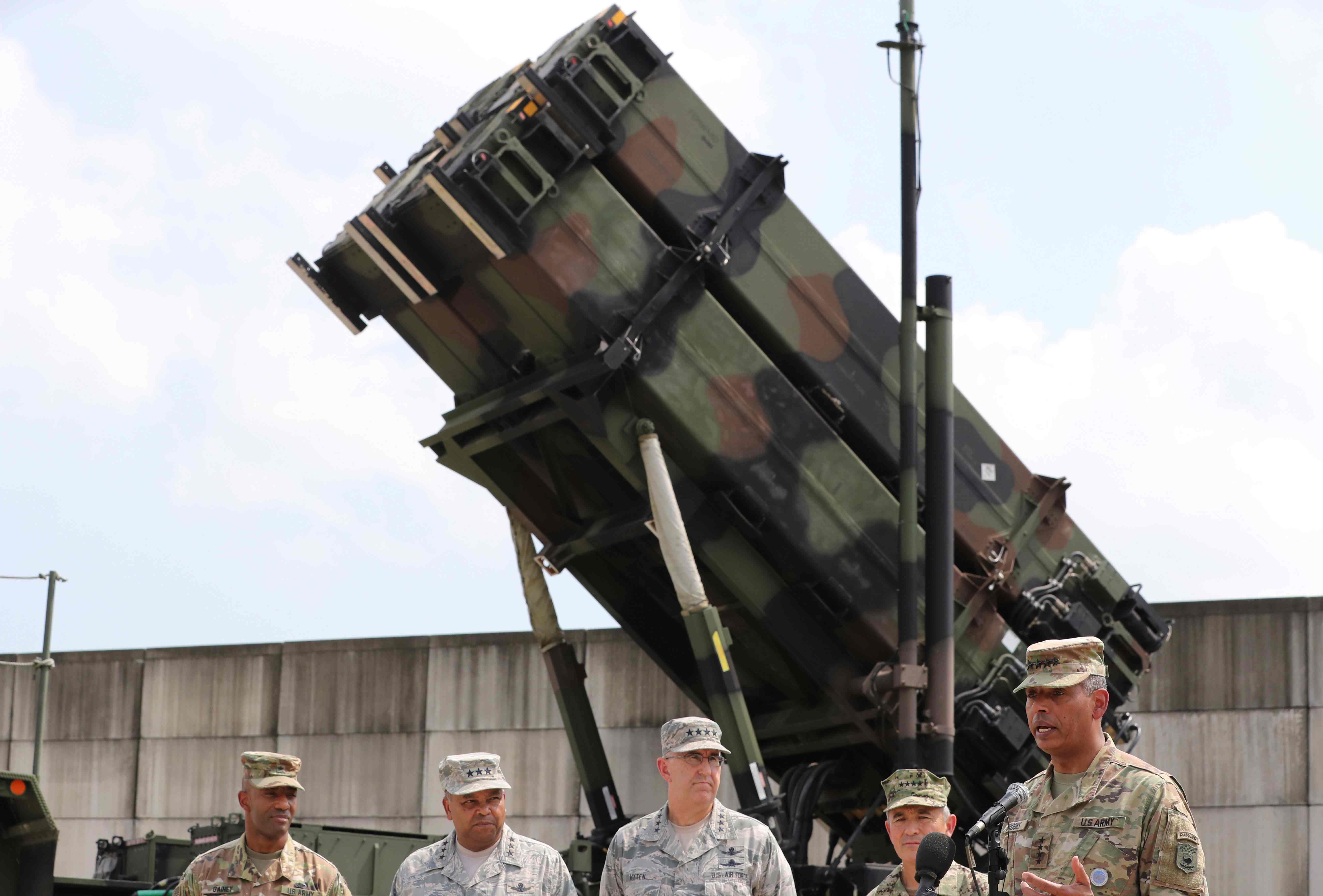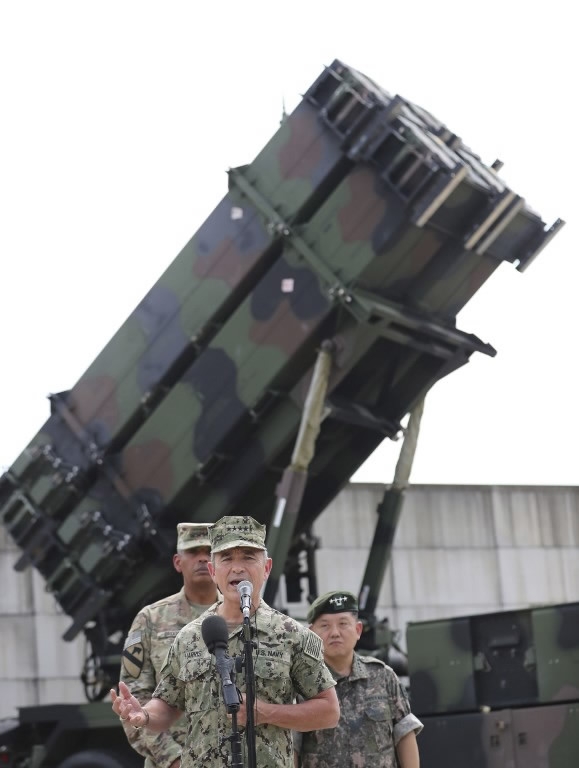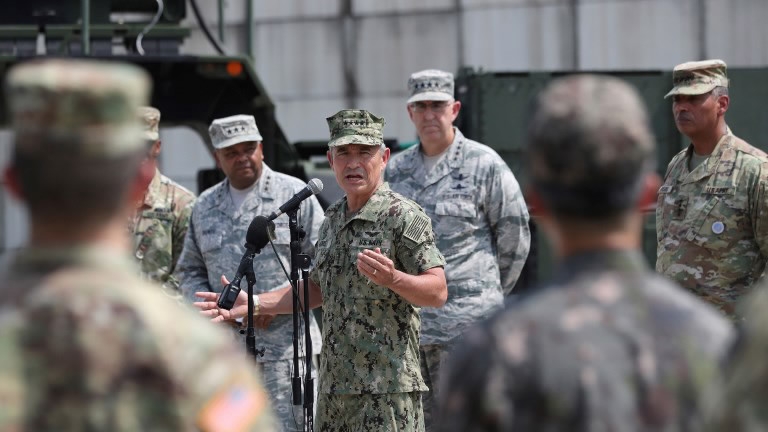The head of the US military’s Pacific Command on Tuesday stressed the importance of diplomacy, rather than a preemptive military strike, to address the Democratic People's Republic of Korea's (DPRK's) growing nuclear and missile threats.
Admiral Harry Harris, chief of the US Pacific Command, held a rare press conference at the Osan Air Base outside Seoul, South Korea along with visiting commander of US Strategic Command Gen. John Hyten and Lt. Gen. Samuel Greaves, director of the US Missile Defense Agency.
To tackle the DPRK’s menaces, “the most important starting point is the diplomatic starting point”, said Harris, who is in South Korea to inspect the Ulchi Freedom Guardian (UFG) exercises.

US Pacific Command Commander Admiral Harry Harris Jr. (3rd R) answers a reporter's question during a press conference as Commander of the US 94th Army Air and Missile Defense Command Brigadier General Sean Gainey (L), Lt. Genenal Samuel A. Greaves (2nd L), director of the US Missile Defense Agency, General John Hyten (3rd L), commander of the US Strategic Command, US Forces Korea Commander Genenal Vincent Brooks (2nd R) and Deputy Commander of the South Korea-US Combined Force Command General Kim Byeong-joo (R) stand in front of a PAC-3 launch station at Osan Air Base in Pyeongtaek, South Korea on August 22, 2017. /AFP Photo
US Pacific Command Commander Admiral Harry Harris Jr. (3rd R) answers a reporter's question during a press conference as Commander of the US 94th Army Air and Missile Defense Command Brigadier General Sean Gainey (L), Lt. Genenal Samuel A. Greaves (2nd L), director of the US Missile Defense Agency, General John Hyten (3rd L), commander of the US Strategic Command, US Forces Korea Commander Genenal Vincent Brooks (2nd R) and Deputy Commander of the South Korea-US Combined Force Command General Kim Byeong-joo (R) stand in front of a PAC-3 launch station at Osan Air Base in Pyeongtaek, South Korea on August 22, 2017. /AFP Photo
The commander said a strong diplomatic effort should be backed by a strong military effort, adding that combat power should be used to support diplomacy.
It was very unusual for top-level US military generals serving abroad to gather in South Korea for public statements on the DPRK issue.
"The rare gathering may be aimed at sending a warning message to Pyongyang as tensions escalated on the Korean Peninsula following the DPRK's ICBM tests and the subsequent war of words between Pyongyang and Washington," analyzed Chinese news agency Xinhua.
The Pacific Command is in charge of sending US reinforcements in time of armed conflict on the peninsula, while the Strategic Command controls US strategic assets such as nuclear-capable bombers and land-based ICBMs.

US Forces Korea Commander General Vincent Brooks (R) speaks to the media during a press conference at Osan Air Base in Pyeongtaek, South Korea on August 22, 2017. /AFP Photo
US Forces Korea Commander General Vincent Brooks (R) speaks to the media during a press conference at Osan Air Base in Pyeongtaek, South Korea on August 22, 2017. /AFP Photo
The US Missile Defense Agency manages missile defense systems such as the Terminal High Altitude Area Defense (THAAD), part of which has been deployed to the southeastern region of South Korea.
The presence of Greaves who leads the US missile defense systems also indicated the THAAD's inclusion in this year's UFG simulation exercise.
Hyten, who oversees the Strategic Command, told the press conference that his command would provide the US Forces Korea (USFK) with "all strategic capabilities" to deter any DPRK provocation, according to local media reports.
He noted that all options, including missile defense systems, are under consideration.

US Pacific Command Commander Admiral Harry Harris Jr. (front), at a press conference on August 22, 2017. /AFP Photo
US Pacific Command Commander Admiral Harry Harris Jr. (front), at a press conference on August 22, 2017. /AFP Photo
The allies say the largely computer-simulated UFG drills are purely defensive in nature, but Pyongyang views them as a highly provocative rehearsal for invasion and every year threatens strong military counteraction.
In a statement carried by the official Korean Central News Agency Tuesday, a DPRK army spokesman described Harris and his colleagues as “brass hats of the US imperialist aggressor forces, who would be directly in charge of preemptive strike at the DPRK and war of aggression”.
Any attempt to do so would have “catastrophic consequences”, it added.
Source(s): AFP
,Xinhua News Agency





